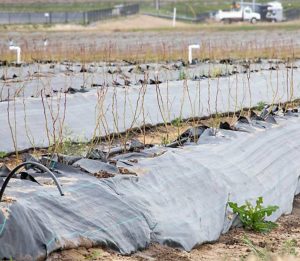Blueberry associations throughout the nation have convinced U.S. trade authorities to investigate whether imports are harming the domestic market.
At the urging of blueberry growers, three U.S. agencies have agreed to petition the International Trade Commission, asking for a Section 201 investigation into how much injury increased blueberry imports have caused to domestic growers.
The U.S. Department of Agriculture, the Office of the U.S. Trade Representative and the U.S. Department of Commerce announced in a September report a host of actions designed to protect domestic perishable fruit and vegetable producers from imports that could affect the market in negative ways. Investigations, direct talks with other countries and reporting to Congress are among the actions.
Blueberries are one of the products slated for investigations under Section 201, which allows for tariffs and import limits if officials determine an increase in imports “are causing or threatening to cause serious injury to domestic producers of the product,” the report said. Unlike antidumping investigations, a Section 201 investigation does not require a finding of illegal trade practices.
In the past 15 years, blueberry imports have increased from about 50 million pounds to 400 million pounds; most of them are from Mexico, Chile and Peru.
Blueberry growers from Georgia and Florida, whose seasons overlap with those countries, led the request, though those who testified before the federal agencies called the issue a national one. Blueberries that don’t make it into the fresh market drive up inventory in the frozen market all over the country, they said. At least one grower from Michigan testified before federal authorities.
The U.S. is the world’s largest blueberry producer. In 2019, Washington was the top growing state, followed by Oregon, Georgia, Michigan, California, New Jersey, North Carolina and Florida.
—by Ross Courtney







Good luck with that. The Trade commission didnt care about Turkey dumping cherrys . Left the farmers in the US high and dry